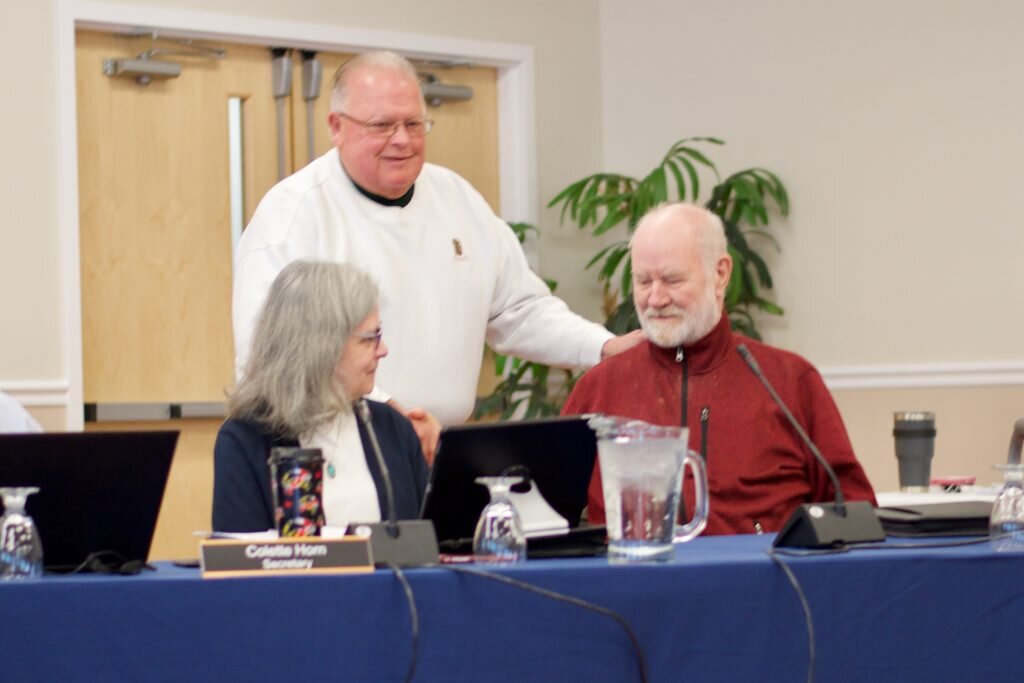
JOSH DAVIS/BAYSIDE GAZETTE
Newly appointed Ocean Pines Director Jeff Knepper, right, is greeted by directors Colette Horn and Frank Daly on Saturday. Knepper, who is filling the role of Ted Moroney after his resignation last month, said he would not run to keep the seat during the August election.
By Josh Davis, Associate Editor
(April 11, 2019) Jeff Knepper, 74, became the newest member of the Ocean Pines Board of Directors on Saturday.
He was appointed by a 6-0 vote to replace Ted Moroney, who resigned last month.
Association President Doug Parks said the board was obligated by its bylaws to replace Moroney and that Knepper, a former director, has experience.
In 2014, Knepper was appointed to replace another director, Dan Stachurski, after his resignation. Knepper ran for the board later that year, but lost to Pat Renaud and Dave Stevens.
During his working career, Knepper was an Ohio-based tax attorney. He would eventually retire as general manager of the Intel corporation’s Information Technology Risk Management group.
Knepper said it was a condition of his 2014 appointment that he run for the board, but this time he would not seek election when his term expires this August.
He has been a regular presence at board meetings for many years, and also served on the budget and finance, and bylaws and resolutions advisory committees, up until the appointment on Saturday.
“I enjoy the meetings,” he said. “I understand a lot of it … [and] I have a pretty good working knowledge of the bylaws.
“I think I can serve the association and I think I can make some things better,” he continued. “That’s not a requirement for me, but I’m going to try to do that.”
Knepper several times on Saturday invoked his previous experience in procurement efforts with Intel, especially when discussing requests for proposals related to the police and administration building, country club, and golf cart barn.
“We were a $60 billion a year corporation – Ocean Pines is nowhere near that,” he said. “Some of the stuff we did was overkill beyond belief for Intel, even. Those things won’t work here, so you don’t try them.
“There are other things we did that will scale, so we can do a smaller version of it, and it was helpful before and [could be] helpful again,” he added.
At Intel, for example, companies bidding on a project would often be some of Intel’s biggest customers, meaning they didn’t want to spurn the losers.
“We developed an absolutely bulletproof RFP process,” Knepper said. “If you were caught on the floor [of the company], we took your badge for a long time. An account manager can’t do his job if he can’t go on the site. If you’re running around talking to engineers behind my back and trying to have something happen that the company doesn’t want to but the individual engineer might, I can’t let you do that. It’s disruptive, it’s expensive for me [and] it’s the wrong thing to do.
“I doubt OPA would ever need to do [something similar], but if they ever do I know how to do it,” he continued. “We were able to issue RFPs, single source, out of our five top-customers … and they all said, ‘we don’t like the result, but the process was really fair.’ That, to me, is winning.”
